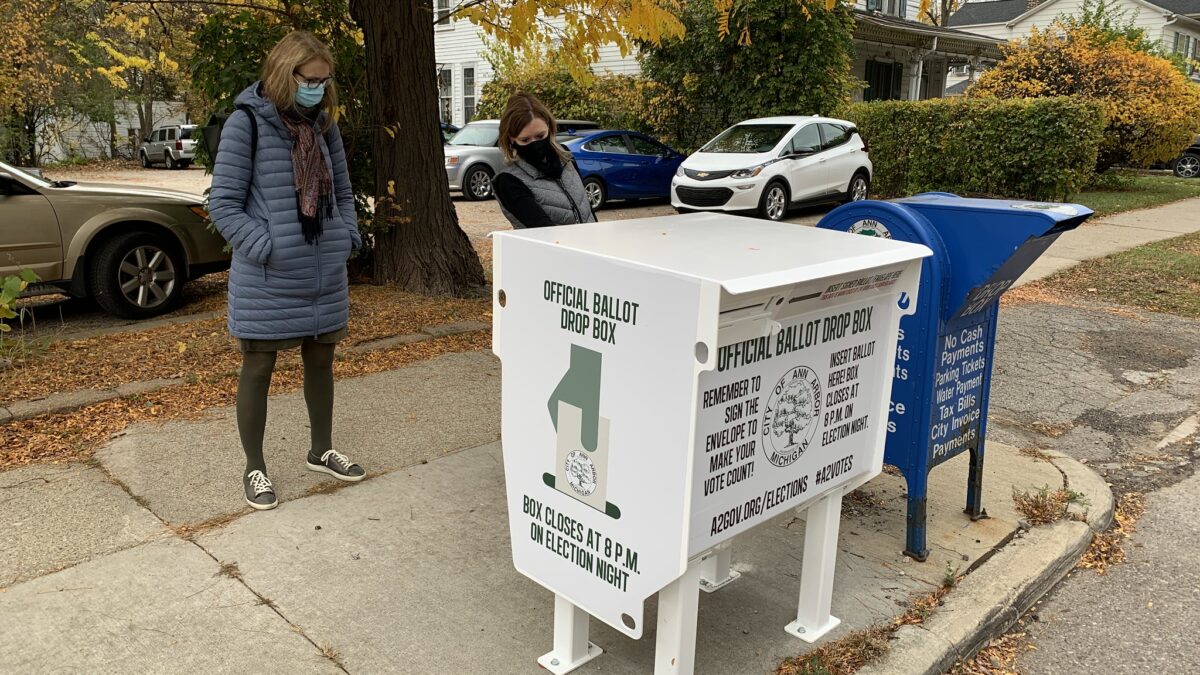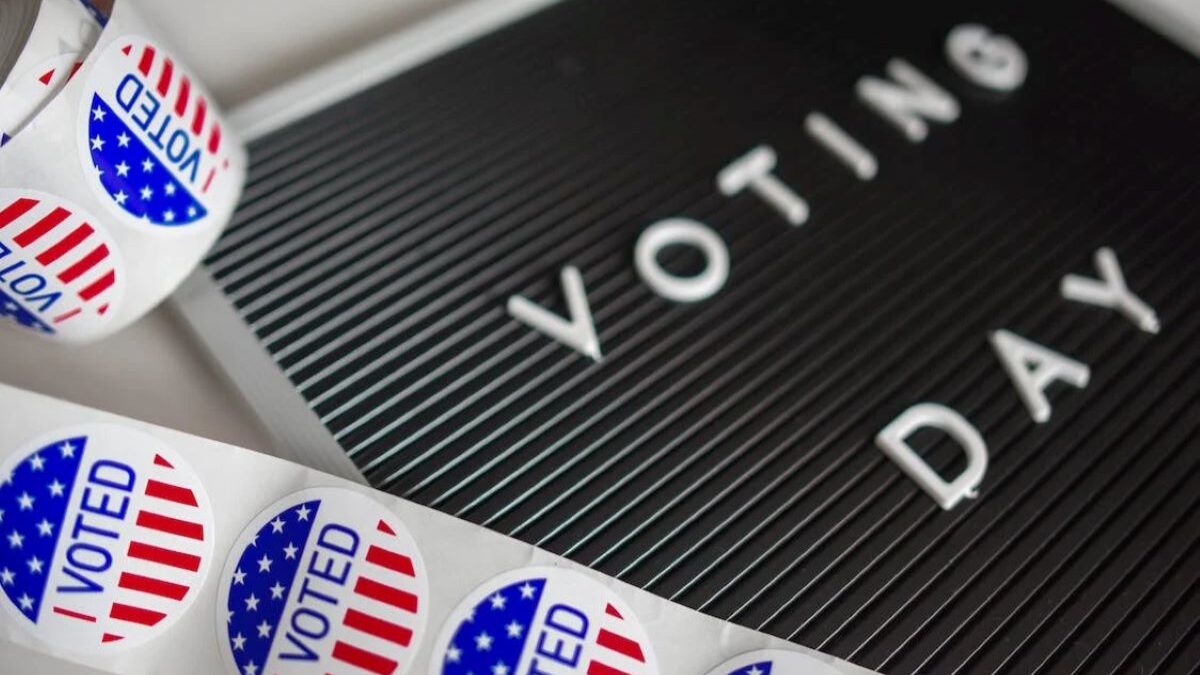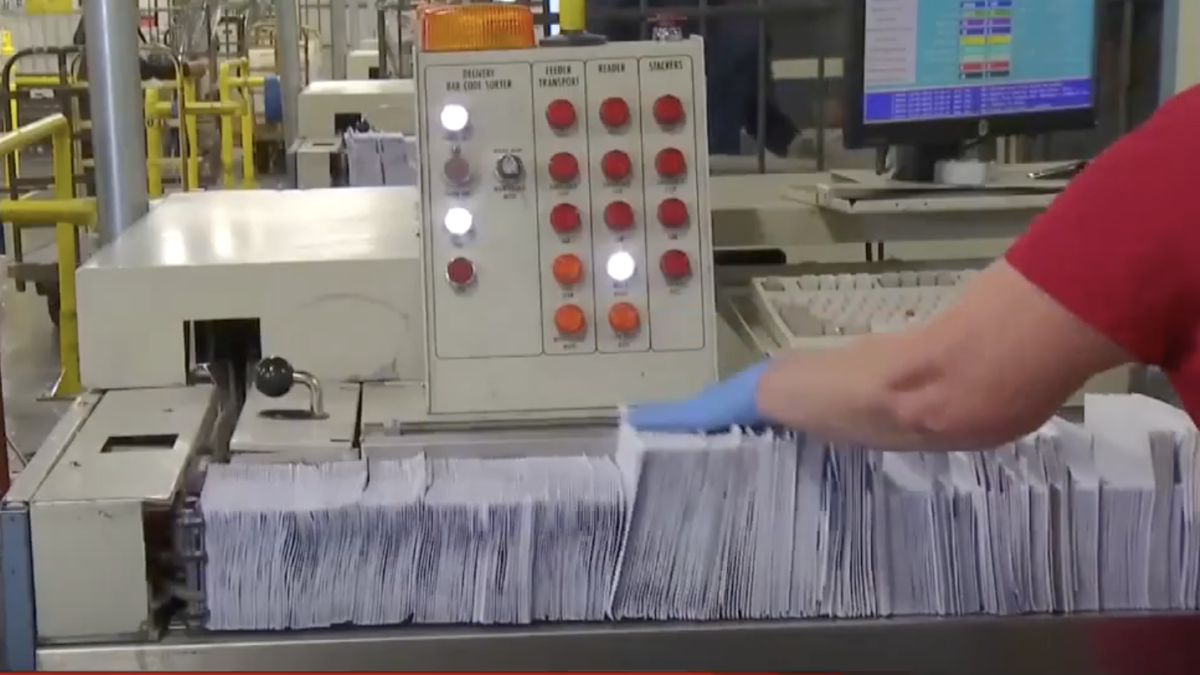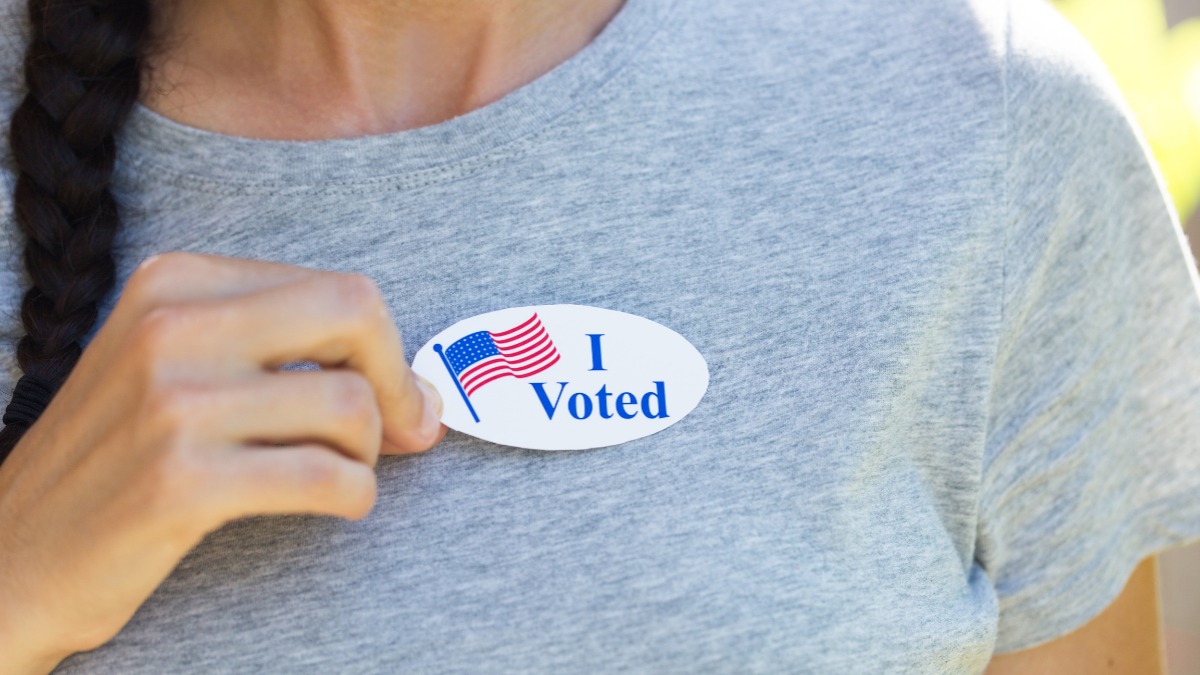The gold standard in voting is to vote in person on Election Day while showing a government-issued photo ID to prove eligibility.
That said, eight states conduct elections entirely through the mail — California, Colorado, Hawaii, Nevada, Oregon, Utah, Vermont (general elections only), and Washington. Another 27 states, including Wisconsin and Washington, D.C., offer “no-excuse” absentee voting.
In the run-up to the 2020 election, Democrats, unions, and some left-wing organizations made a big push for mail-in balloting. Polling even showed a growing partisan divide over a practice that had favored Republicans in the past. An ABC News/Washington Post poll showed that Republicans intended to vote in person by 79 percent to 20 percent. Democrats preferred to vote by mail, 51 percent to 46 percent.
Ballot Harvesting and Voter Coercion
Voting by mail can allow partisan ballot traffickers to badger voters into giving up their ballot or even allowing them to “help” them fill out their ballot at home before taking it to a drop box.
It’s illustrative to note that in the 2016 and 2017 legislative sessions, as California moved to all-mail-in elections, the majority of Democrats passed two bills that made it legal to pay people to gather mail-in ballots while dropping the requirement that anyone handling a ballot for another person be a close relative or guardian. In 2017, Texas did the opposite, outlawing the practice of paid ballot hauling.
The widespread use of mail-in ballots makes voters vulnerable to intimidation and coercion.
Mail-In Ballot Processing
Another unintended problem surfaced in 2020 due to the combination of election laws in many swing states. These states prohibited the processing — determining the validity of the ballot but not counting it — of mail-in ballots before Election Day and the large partisan divide over the use of mail-in ballots versus in-person voting.
The Texas Public Policy Foundation predicted one fallout from this phenomenon in a report issued on Oct. 20, 2020:
Due to the political stoking of fears of contracting COVID-19, a massive push has been made, mostly by the left, to encourage voting by mail. This significantly alters the calculus on Election Day and completely upends the postelection period.
Most states and local election officials aren’t prepared to process, validate, and count large number of mail-in ballots. In five swing states (totaling 68 Electoral College votes) — Georgia, Iowa, Michigan, Pennsylvania, and Wisconsin — no mail-in ballots may be counted before Election Day. … Since reports indicate a far greater interest in voting by mail for Democrats than Republicans, it’s likely that President Trump will be winning these states by large margins on Election Day, only to see that margin shrink in the days and weeks after Election Day.
In Wisconsin’s case, some 59.5 percent of the 2020 vote was by absentee ballot. That vote favored President Joe Biden. But because state law prohibited the processing of those ballots until Election Day, the election result wasn’t known until early the next morning.
Wisconsin’s Response
The midterm elections in 2022 showed Wisconsin returning to a more traditional use of absentee ballots. Voters returned 28.6 percent of their ballots by mail. Still, there is growing interest in addressing the issues caused by waiting until Election Day to process mail-in ballots. Wisconsin Senate Bill 685 aims to solve that problem. While all 14 of the bill’s sponsors are Republican, it enjoys bipartisan support in Wisconsin’s Republican-dominated legislature.
SB 685 is a response to the unique challenges seen during the 2020 elections. It aims to streamline the absentee ballot process while maintaining the sanctity of each vote. The bill allows for the processing (but not tallying) of absentee ballots on the Monday preceding Election Day. This would significantly shift away from the current practice where no processing occurs before polls close. This change aims to reduce the backlog of uncounted ballots, potentially speeding up the final count and enhancing transparency.
In addition, the bill has three other provisions of note. It does away with central counting locations, a move aimed at decentralizing the counting process and reducing potential bottlenecks. It requires enhanced election night reporting by instructing county clerks to report ballot counts more frequently. The reports will increase accountability and public awareness of the ongoing count. And it enhances the process of deactivating ineligible voters to strengthen safeguards against voter fraud.
The proposed reforms in SB 685 could enhance the efficiency of Wisconsin’s electoral process. Early processing of absentee ballots would alleviate the pressure on Election Day operations. The process would become smoother and more transparent. However, the bill also raises valid concerns about security and the logistical challenges of implementing new procedures, especially in smaller municipalities. These concerns necessitate a careful approach to ensure adequate resources and training for election officials.
Safeguarding Against Fraud
A crucial aspect of SB 685 is its potential to reduce the likelihood of fraud. By allowing early processing of absentee ballots, the bill creates a more manageable workflow for election officials. With more time, they will be able to scrutinize ballots more thoroughly. It is essential, however, to implement robust safeguards to ensure the security of ballots during the processing period and to prevent premature disclosure of results. The bill classifies unlawful disclosure as a Class I felony.
While the bill aims to expedite the vote-counting process, it must not compromise the security and integrity of the vote. The requirement for frequent updates on processed ballots enhances transparency, a critical factor in building public trust. The bill’s provisions for securing election materials and addressing potential tampering incidents will further protect the integrity of the process.
As Wisconsin prepares for the 2024 presidential election cycle, the lessons learned from 2020 loom large. SB 685 addresses these challenges, ensuring that Wisconsin’s electoral system is both resilient and responsive to the needs of its voters. In passing SB 685, Wisconsin could set a precedent for other states grappling with similar issues, potentially improving public faith in our election process.








